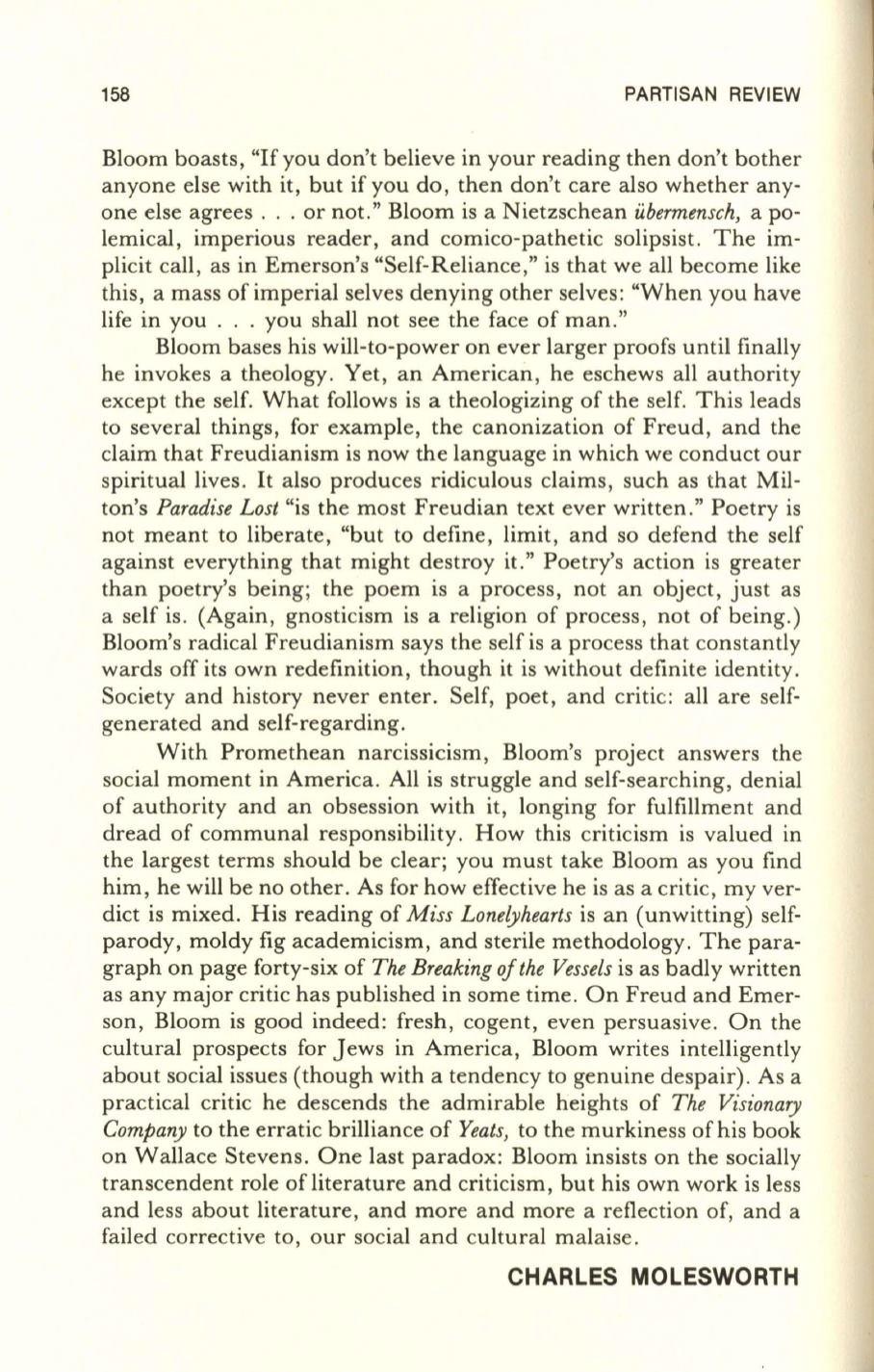
158
PARTISAN REVIEW
Bloom boasts, "!fyou don't believe in your reading then don't bother
anyone else with it, but if you do, then don't care also whether any–
one else agrees ... or not." Bloom is a Nietzschean
ubermensch,
a po–
lemical, imperious reader, and comico-pathetic solipsist. The im–
plicit call, as in Emerson's "Self-Reliance," is that we all become like
this, a mass of imperial selves denying other selves: "When you have
life in you . . . you shall not see the face of man."
Bloom bases his will-to-power on ever larger proofs until finally
he invokes a theology. Yet, an American, he eschews all authority
except the self. What follows is a theologizing of the self. This leads
to several things, for example, the canonization of Freud, and the
claim that Freudianism is now the language in which we conduct our
spiritual lives. It also produces ridiculous claims, such as that Mil–
ton's
Paradise Lost
"is the most Freudian text ever written ." Poetry is
not meant to liberate, "but to define, limit, and so defend the self
against everything that might destroy it." Poetry's action is greater
than poetry's being; the poem is a process, not an object, just as
a self is. (Again, gnosticism is a religion of process, not of being.)
Bloom's radical Freudianism says the self is a process that constantly
wards off its own redefinition, though it is without definite identity .
Society and history never enter. Self, poet, and critic: all are self–
generated and self-regarding .
With Promethean narcissicism, Bloom's project answers the
social moment in America. All is struggle and self-searching, denial
of authority and an obsession with it, longing for fulfillment and
dread of communal responsibility. How this criticism is valued in
the largest terms should be clear; you must take Bloom as you find
him, he will be no other. As for how effective he is as a critic, my ver–
dict is mixed. His reading of
Miss Lonelyhearts
is an (unwitting) self–
parody, moldy fig academicism, and sterile methodology. The para–
graph on page forty-six of
The Breaking ofthe Vessels
is as badly written
as any major critic has published in some time . On Freud and Emer–
son, Bloom is good indeed: fresh, cogent, even persuasive. On the
cultural prospects for Jews in America, Bloom writes intelligently
about social issues (though with a tendency to genuine despair). As a
practical critic he descends the admirable heights of
The Visionary
Company
to the erratic brilliance of
Yeats,
to the murkiness of his book
on Wallace Stevens. One last paradox: Bloom insists on the socially
transcendent role of literature and criticism, but his own work is less
and less about literature, and more and more a reflection of, and a
failed corrective to, our social and cultural malaise.
CHARLES MOLESWORTH


